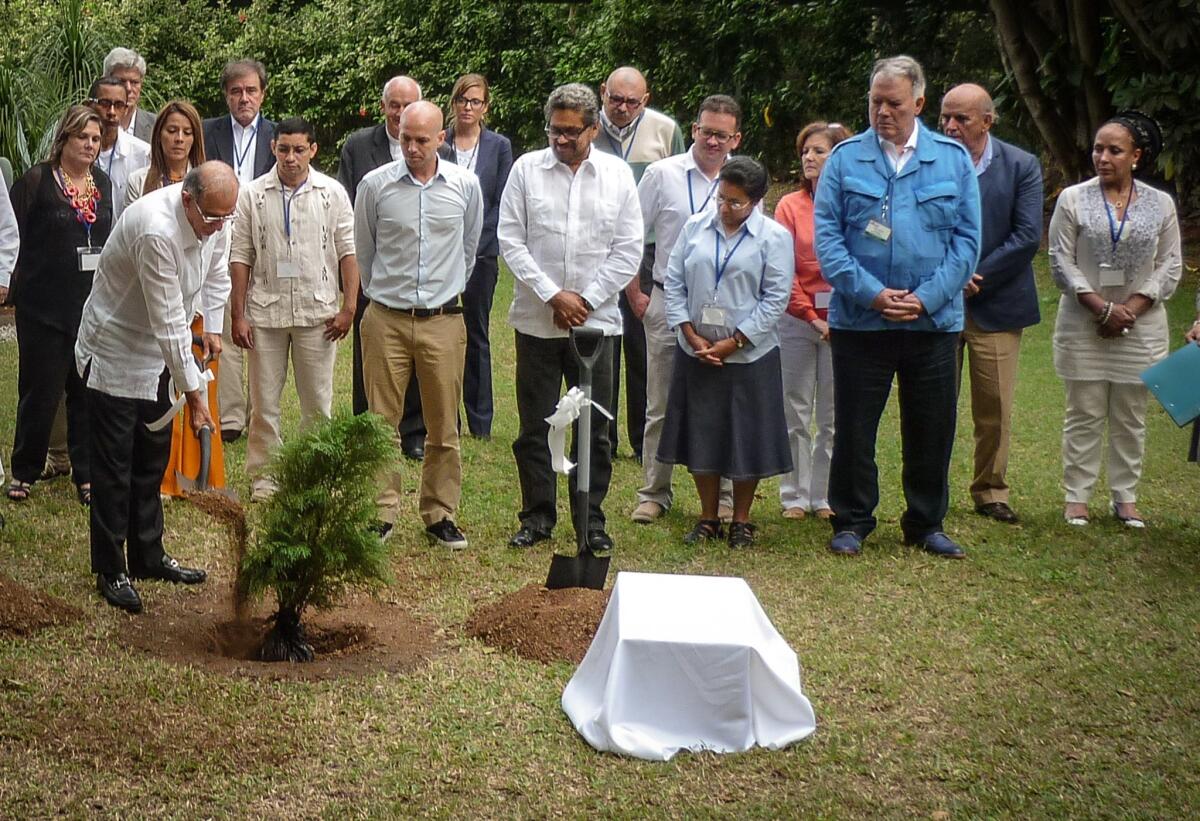Colombia’s leftist FARC rebels declare unilateral cease-fire

- Share via
Reporting from Bogota, Colombia — Leftist rebels negotiating a peace agreement with the Colombian government on Wednesday declared a unilateral and indefinite cease-fire in hope of drawing a reciprocal halt by the armed forces, something President Juan Manuel Santos has so far resisted.
In a communique from Havana, where talks have been underway since November 2012, the Revolutionary Armed Forces of Colombia, known by its Spanish initials FARC, said the cease-fire would take effect in early Saturday and would end only if soldiers or police attacked rebel units.
“We have resolved to declare a unilateral end to hostilities for an indefinite period, which must transform itself into an armistice,” FARC leaders said in the statement, published on their website. They called on multinational bodies, including the Union of South American Nations, to oversee a truce if one takes hold.
There was no immediate government reaction. So far the Santos administration has resisted all suggestions that its forces observe a cease-fire, referring to the abortive 1999-2002 peace negotiations when the rebels used a partial cease-fire to advance their forces strategically and continue kidnapping prominent politicians.
The negotiations have produced tentative agreements on three of five negotiating points but have been bogged down since May over victims’ rights and reparations. The talks foundered last month when rebels kidnapped a Colombian army Gen. Ruben Dario Alzate in a northwest jungle zone, but were restarted this month after the general was released Nov. 30.
No specific progress on the victims rights issues was reported this week, although FARC negotiators met with victims and their family members who traveled to Havana from Colombia.
A rebel commander this month drew criticism when he denied that FARC fighters have committed ‘’crimes against humanity,’’ a claim that many Colombians inured to massacres, kidnappings and disappearances over a half century of conflict found hard to accept.
Kraul is a special correspondent.
More to Read
Sign up for Essential California
The most important California stories and recommendations in your inbox every morning.
You may occasionally receive promotional content from the Los Angeles Times.









